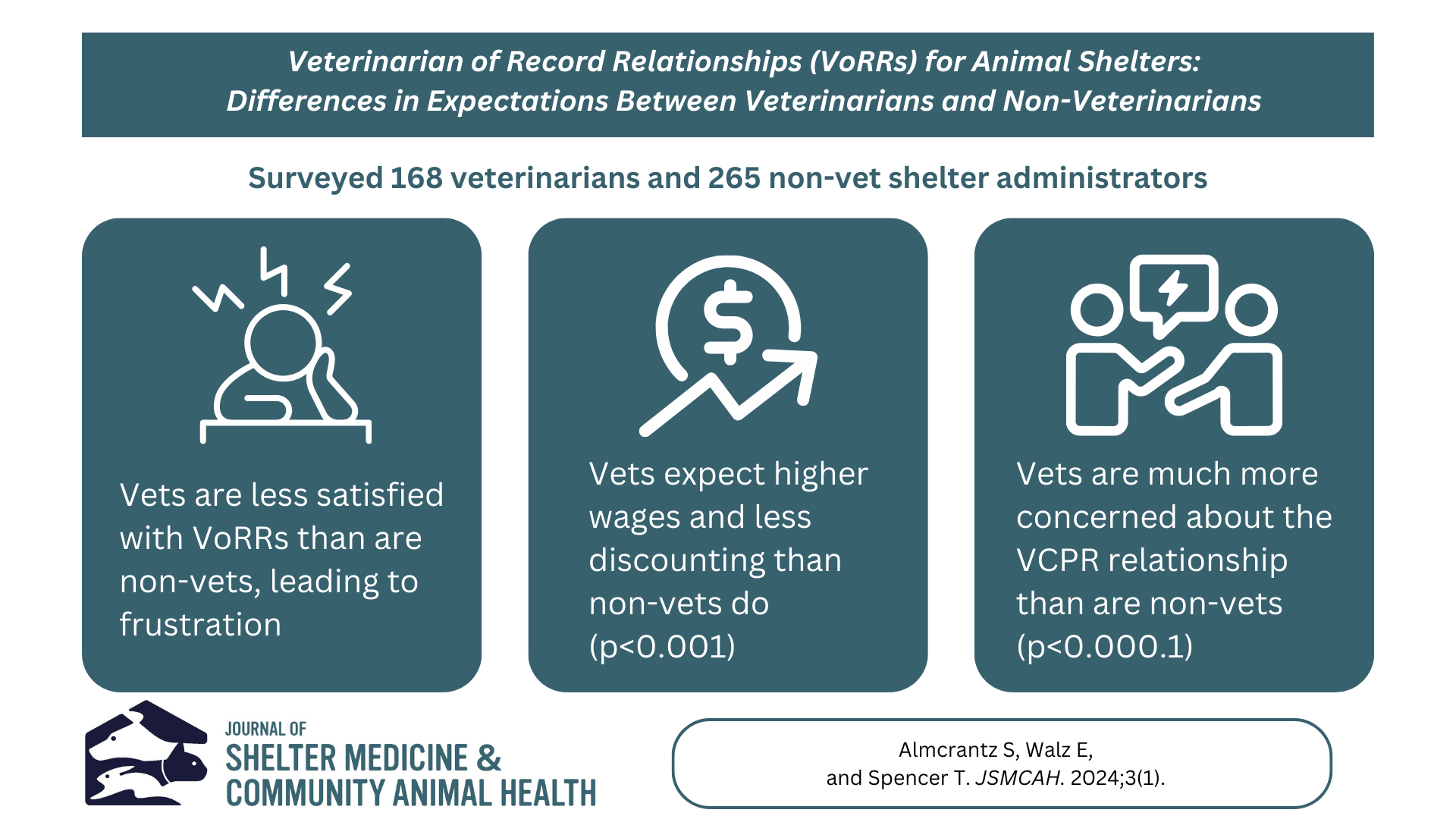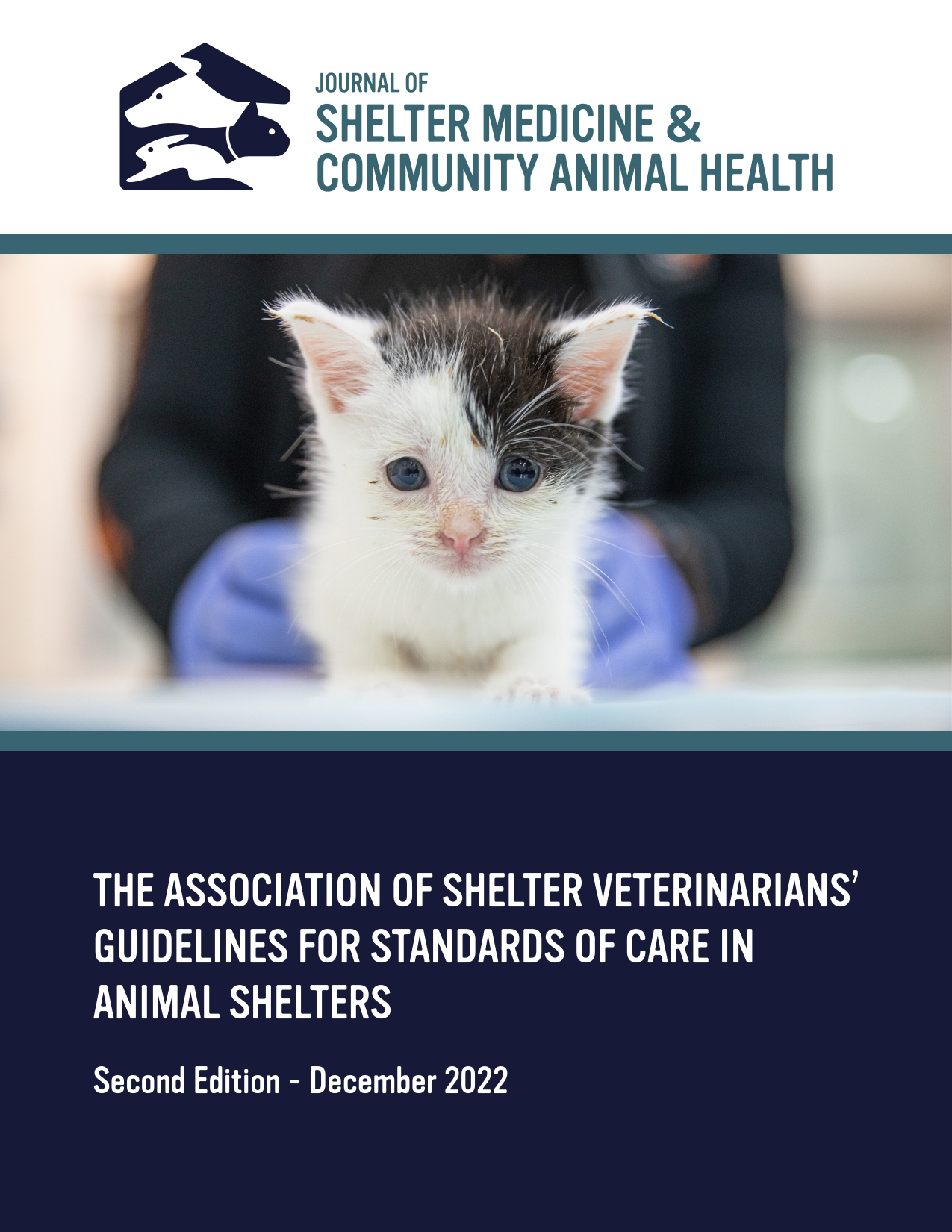Veterinarian of Record Relationships for Animal Shelters: Differences in Expectations between Veterinarians and Nonveterinarian Shelter Administrators
DOI:
https://doi.org/10.56771/jsmcah.v3.70Keywords:
veterinarian, animal shelter, veterinarian-client-patient-relationship, survey, motivation, goals, welfareAbstract
Veterinarian of record relationships (VoRRs) are nonregulated business agreements between animal shelters, veterinarians, and distributors that allow resource-limited organizations to purchase wholesale medical supplies. Anecdotally, animal shelters report difficulty retaining veterinarians to serve as Veterinarians of record (VoRs) and veterinarians report reluctance to work with animal shelters, resulting in increased expenses for the organizations and diminished access to veterinary care for their populations. We distributed an anonymous, online survey to explore the motivations and expectations of a VoRR from the perspective of the animal shelter administrator and the potential VoR. The primary motivators to enter a VoRR and concerns about a VoRR differed between veterinarian and nonveterinarian respondents. Specifically, veterinarians were significantly more concerned than nonveterinarian administrators about adherence to the legal requirements to fulfill a veterinary-client-patient relationship (VCPR). Additionally, veterinarians expected significantly higher compensation for veterinary services than shelter administrators expected to provide. These findings suggest a potential disconnect between shelters and veterinarians regarding financial, legal, and ethical aspects of VoRRs, possibly leading to hesitance among veterinarians to engage in such roles. Describing these differences is the first step in determining how to bridge these expectation gaps toward the joint goal of improving welfare for animals in shelter settings.
Downloads
References
FDA. CVM Guidance for Industry #263: Recommendations for Sponsors of Medically Important Antimicrobial Drugs Approved for Use in Animals to Voluntarily Bring Under Veterinary Oversight All Products That Continue to be Available Over-the-Counter | FDA. Accessed Dec 27, 2023. https://www.fda.gov/regulatory-information/search-fda-guidance-documents/cvm-gfi-263-recommendations-sponsors-medically-important-antimicrobial-drugs-approved-use-animals
Eysenbach G. Improving the quality of Web surveys: the Checklist for Reporting Results of Internet E-Surveys (CHERRIES). J Med Internet Res. 2004;6(3):e34. doi: 10.2196/jmir.6.3.e34

Published
Issue
Section
License
Copyright (c) 2024 Sara R. Almcrantz, Emily J. Walz, Terry G. Spencer

This work is licensed under a Creative Commons Attribution 4.0 International License.









